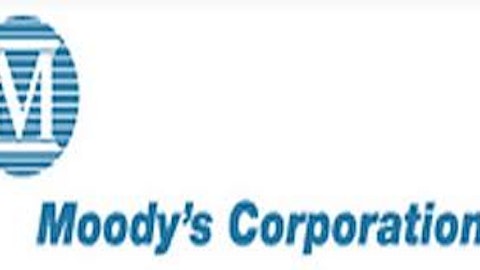An alternative solution
As management notes, its competitive advantage arises from the broad scope of its operations up and down the energy value chain. And despite concerns about nuclear power, it remains a viable clean energy alternative to fossil fuels. Yet getting a new nuclear power plant approved is a long and arduous, not to mention expensive, task, so Exelon Corporation (NYSE:EXC) believes it can invest in nuclear uprates to grow its production. As the Fool’s Matt DiLallo recently pointed out, if uprates are achieved across its entire portfolio, the plant operator can increase production as much as if it had built a new plant, and he points out that NextEra Energy, Inc. (NYSE:NEE) is also investing $1.5 billion in an uprate program to add 400 megawatts of nuclear capacity.
As beneficial as that is for the operator, it’s not a fait accompli to do so. Uprates refer to the maximum power level at which a commercial nuclear power plant may operate, and they’re set at the time Exelon Corporation (NYSE:EXC), NextEra, or Duke Energy Corp (NYSE:DUK) gets its license. For a company to increase its uprate, it needs to apply to and get prior approval from the Nuclear Regulatory Commission.
Of course, the NRC has a history of approving uprate applications, so it’s not so difficult as all that, and as of April 2011 — the latest available data from the NRC — 139 uprates have been approved since the 1970s, resulting in a gain of approximately 18,063 megawatts thermal or 6,020 megawatts electric at existing plants. That’s the equivalent of six new power plants.
React to the situation
Nuclear power generation is on the rise again. According to data compiled by Bloomberg, after Duke returned its McGuire 1 to the grid at the end of January, national nuclear production increased 1% to 85,845 megawatts, or 84% of capacity, some 0.3% higher than a year ago. Exelon’s also restored its Dresden 3 reactor to full power, and others have done the same with theirs.
While Exelon’s decision to cut its dividend may have disappointed investors and its outlook for the year might not be a glowing endorsement of existing conditions, it’s the longer-term opportunity investors really need to concentrate on, and the nuclear plant operator has shown itself to also be interested in more than short-term gains. That’s the kind of management team an investor would want to align himself with.
Let me know in the comments box below whether you agree that Exelon remains an excellent choice to power your portfolio in the future.
The article Exelon’s Not-So-Excellent Outlook originally appeared on Fool.com and is written by Rich Duprey.
Fool contributor Rich Duprey has no position in any stocks mentioned. The Motley Fool recommends Exelon and Moody’s.
Copyright © 1995 – 2013 The Motley Fool, LLC. All rights reserved. The Motley Fool has a disclosure policy.





